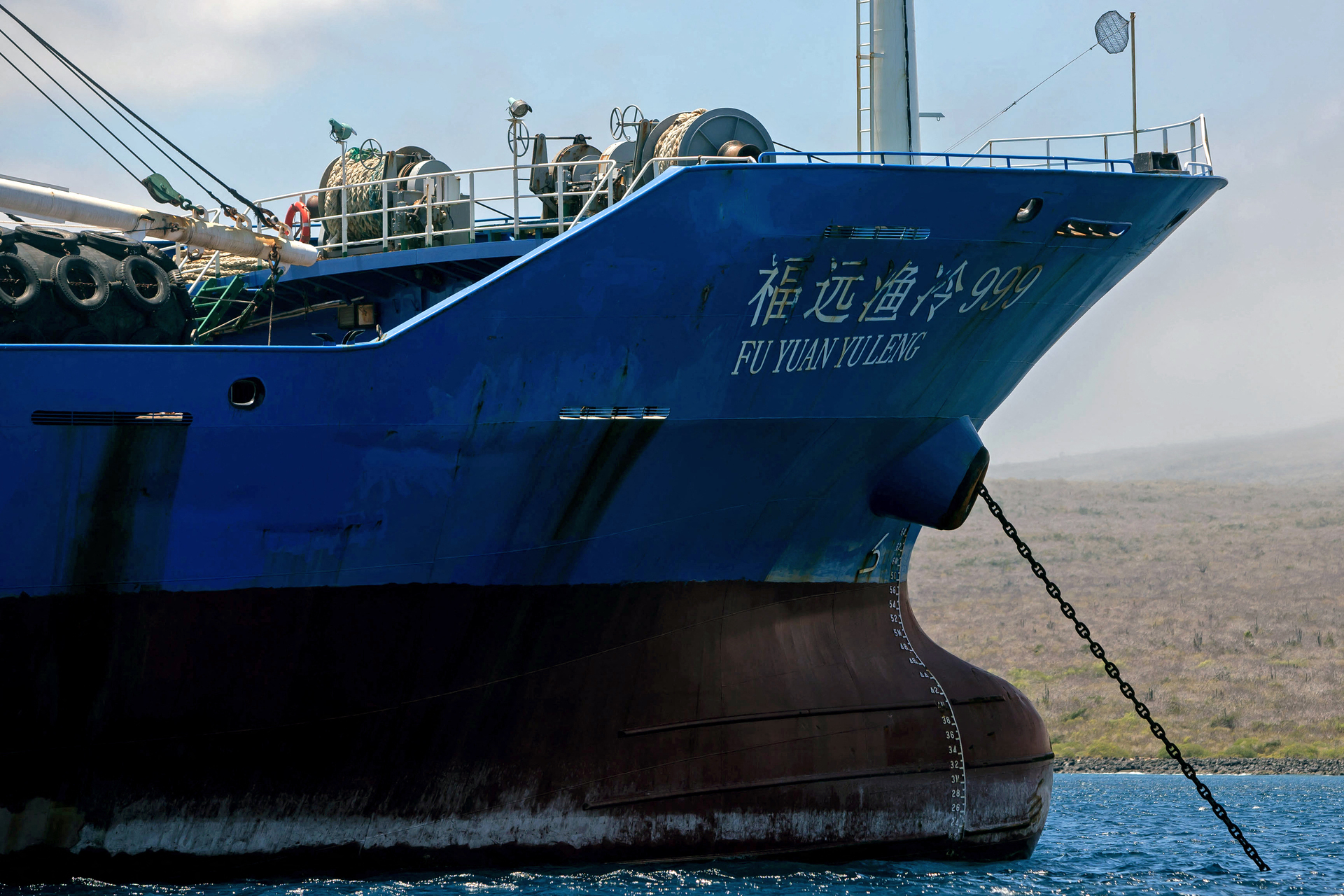O gThe Government of Ecuador uses Canadian technology to monitor illegal, unreported and unregulated fishing (INN) given Chinese fishing fleet in the Galapagos Islands area. Since early June, the government detected about 180 Chinese vessels near the exclusive economic zone (EEZ) of the islands, fishing for giant squid and threatening the biodiversity and economy of countries in the region.
THE MArinha from Ecuador conducts constant patrols to prevent ships from fishing in the protected area. “As long as these vessels are away from the island’s EEZ, more than 100 miles, we are realizing The surveillance by satellite”Ecuadorian Navy Commander of Naval Operations Rear Admiral John Merlo León told Ecuadorian TV Teleamazons.
MDA space technology company, thirsty in Brampton, Ontario, provides satellite tracking, remote sensing and the ability to synthesize large amounts of data for MArinha from Ecuadorreported the Canadian public broadcaster Radio Canada. With tens of thousands of industrial fishing vessels operating in the world’s oceans, identifying illicit operators is like looking for a “needle in the haystack”said The Radio Canada Mark Carmichael, Senior Executive at MDA. In mid-September 2021, Ecuador and Canada signed a cooperation to locate and track in real time, satellites, “dark ships”whose location transponders are disabled.
Ecuadorian authorities have also requested assistance from the Canadian Department of Fisheries and Oceans. Other organisations, including the monitoring group Global Fisheries Monitoring, supported fur Google, to bring Support to the government from Ecuador through the interpretation of movements ofvessels, including fishing operations in prohibited areas, said The Radio Canada.
“Regards very positive that Ecuador has thissand type of agreement with collaborating companies or countries with technological systems to detect thesesfleets, like Canada”said The Dialogue Milko Schvartzman, Argentinian specialist in marine conservationist and member of the NGO Circle of Environmental Policies, which seeks to strengthen the environmental agenda and promote the protection of ecosystems. “It is necessary that thethe countries use different systems with different suppliers and have its own ability to analyze, track and monitor these fleets”added Schvartzman.
The impacts
Illegal fishing by the Chinese fleet around the Galápagos Islands has several impacts. The first is the environmental impact. “This issthe fleet does it is regulated, does not report to any authority and has no observers on board. Therefore, no one knows exactly how much they catch, given that the information is provided only by the captain, without any control”Schvartzman said.
Neither know in which areas the vessels are fishing, what is the size copiesfishs and What are they the rejects of fish. “Thereforethere is a very serious impact on the species (in this case, the giant squid) and on the entire marine ecosystem”, said the specialist. The level of ocean pollution is also unknown. By not respecting any environmental regulations, the Chinese fleet generates tons of waste Daily of all kinds, Schvartzman said.
“There is also an economic impact on coastal communities in the countries from south americagiven that the Chinese fleet is subsidized by the flag state and competes in markets, catching the same species as Capture artisanal boats from Peru and Ecuador”he added. “And there is an impact on human rights, because the crewssthe Chinese fleet are mainly Indonesians, Filipinos or African countries who work in conditions of semi-slavery”, declared Schvartzmann.
the solutions
You experts claim that a greater mobilization of the international community is necessary to prevent overfishing. “We must work on a global agreement,protect biodiversity in international waters”said at Teleamazons Alexander Hearn, Professor of VSSciences Blogic and THEfrom the University of San Francisco in Quito. In mid-June, the World Trade Organization reached a historic agreement to end harmful fisheries subsidies. The agreement, what a step towards the fulfillment of Sustainable Development Goals, creates an overarching framework that brake fishing subsidies HOSTEL.
Schvartzman offers several solutions to the problem. One of them is What “each the vessel must have observers on board and comply with international norms and standards minimal working and safety conditions on board, which is not it happens today”Schwartzman said.
Jshould also be regulated Otranshipment on the high seas, which today is done completely stealthily, declared The specialist. He also sayssse that there should be a single registration of ships, i.e. whether there is one name and oneThe uniqueTheLicence. “Today, the Chinese fleet uses sister ships, with the same names and the same Licenceat hide your activities,” Thesign.
“must alsolaugh required to permanently connect global positioning systems Dit issShips. As we know Chinese fleet stop them all the time”, concluded Schvartzmann.

“Pop culture fan. Coffee expert. Bacon nerd. Infuriatingly humble communicator. Friendly gamer.”







